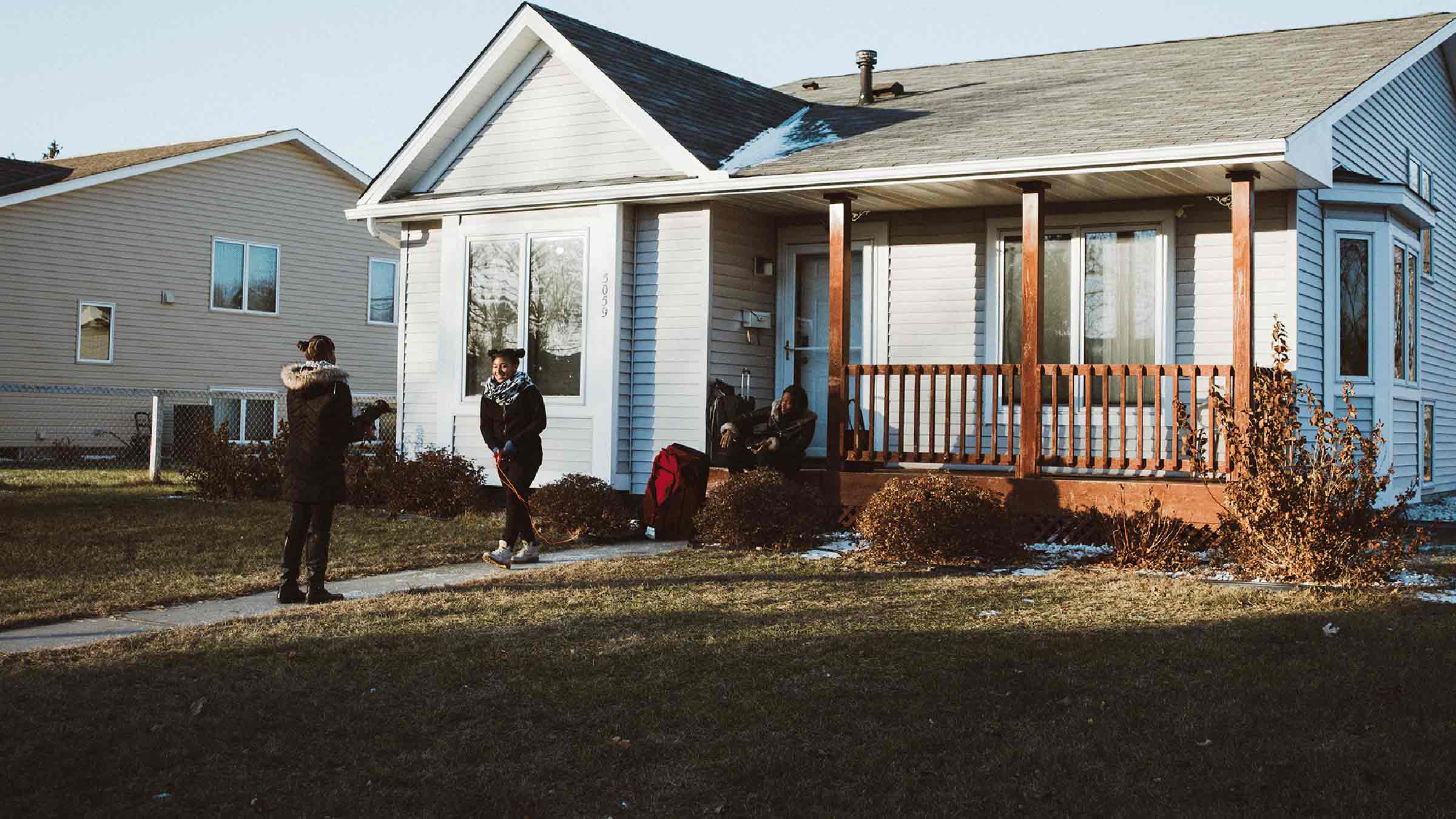
FOR IMMEDIATE RELEASE: MINNEAPOLIS (June 6, 2023) – Greater Twin Cities United Way (United Way) announced today the launch of Pathways Home, a new initiative focused on homelessness prevention for young people. Unlike many housing programs, Pathways Home is innovative in its focus on preventing, rather than responding to, homelessness. As part of the launch, United Way is granting $1.2 million in funding to 11 nonprofit organizations throughout the Greater Twin Cities region, all of whom serve youth who are exiting foster care or transitioning from incarceration.
Pathways Home's populations of focus reflect the latest data around high-risk factors that contribute to homelessness in our region. Every year in Minnesota, 400 youth age out of foster care on their 18th birthday, and by age 21, 41 percent do not have stable housing. Similarly, in 2021, 25 percent of people released from Minnesota’s correctional facilities were released directly into homelessness. People of Color, specifically Black and Indigenous people, are vastly overrepresented in these populations and in our region’s homeless population at large.
"We know the circumstances that place young people at greater risk of homelessness – and yet our state's housing system is designed to respond to crises only after they've occurred," says John Wilgers, President & CEO of Greater Twin Cities United Way. "Pathways Home builds new support systems and resources that will disrupt pipelines into homelessness for those who are most at risk."
In addition to grant funding, the initiative also provides nonprofit partners with training and peer-to-peer learning in a Community of Practice. The first round of partners will receive funding for 18 months. In future years, the program's scope will expand to include older adults who are also transitioning out of incarceration.
Read more from Pathways Home Program Officer Ahmed Sirleaf about what makes Pathways Home unique.
Pathways Home is supported through significant collaboration with local philanthropic leaders. Leading corporate supporters in the development of Pathways Home include 3M, Securian Financial and Wells Fargo.
“Improving the systems that contribute to homelessness can only happen in deep collaboration with the communities that are most impacted. Pathways Home and the leadership of Greater Twin Cities United Way embody the trust-based approach to philanthropy that we aspire to at 3M,” said Michael Stroik, 3M’s vice president of community relations.
Pathways Home is developed with input and feedback from the community and initiative partners. The Pathways Home Advisory Group includes people with lived experience in the foster and legal systems, government leaders and direct service providers.
###
About Greater Twin Cities United Way: Greater Twin Cities United Way unites changemakers, advocates for social good and develops solutions to address the challenges no one can solve alone to create a community where all people thrive. The organization serves the community through five key offerings: Crisis and Information Support (211 resource helpline, 988 Suicide and Crisis Lifeline), innovation initiatives, nonprofit partnerships, advocacy work with legislators, and business and individual donor partnerships. For more information, visit www.gtcuw.org and follow us on Facebook, Twitter, Instagram and LinkedIn.
Contact: Sam Daub, Greater Twin Cities United Way, sam.daub@gtcuw.org, 612-340-7425